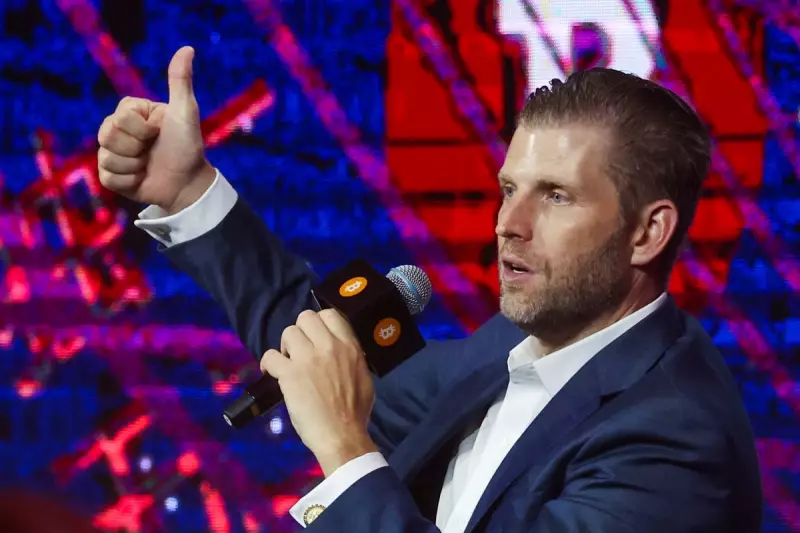
Eric Trump has become the latest high-profile political figure to fall victim to sophisticated artificial intelligence manipulation, with a disturbing deepfake video circulating across social media platforms.
The fabricated footage shows Donald Trump's son appearing to make inflammatory statements he never actually uttered, raising serious concerns about the growing threat of AI-generated disinformation in the political arena.
The Anatomy of Deception
Digital forensics experts examining the video confirm it displays all the hallmarks of advanced AI manipulation. The deepfake technology seamlessly superimposes Eric Trump's likeness and voice onto fabricated content, creating a convincing but entirely false narrative.
This incident represents a significant escalation in the quality and sophistication of political deepfakes, with the video being sufficiently convincing to deceive casual viewers.
Political Implications and Responses
The emergence of this AI-generated content comes at a sensitive time in American politics, highlighting the vulnerability of public figures to digital impersonation. The Trump family has historically been at the centre of numerous political controversies, but this marks a new frontier in character assassination attempts.
Security analysts warn that such sophisticated deepfakes could potentially influence public opinion, manipulate stock markets, or even destabilise international relations if left unchecked.
The Growing Deepfake Epidemic
This incident is far from isolated. Recent months have seen an explosion in AI-generated content targeting politicians, celebrities, and business leaders worldwide. The accessibility of deepfake technology has lowered barriers to creating convincing fake media, presenting unprecedented challenges for truth verification.
Social media platforms continue to struggle with containing the spread of such content, despite implementing various detection systems and content moderation policies.
Protecting Against Digital Impersonation
Security experts recommend several measures for public figures to protect themselves against deepfake attacks:
- Regular monitoring of online presence for fraudulent content
- Implementation of digital watermarking for official media
- Public education about deepfake detection techniques
- Development of advanced verification protocols for media outlets
The Eric Trump deepfake serves as a stark reminder that in the digital age, seeing is no longer believing. As artificial intelligence continues to advance, the line between reality and fabrication becomes increasingly blurred, demanding new approaches to media literacy and content verification.





